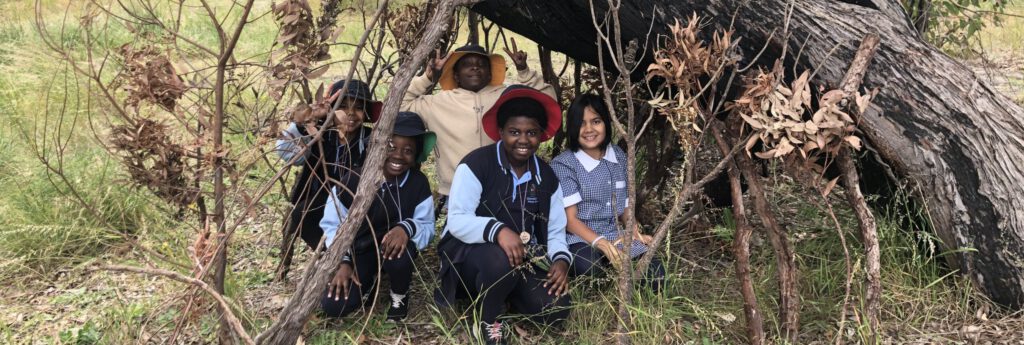I read the recent Conversation piece with a heavy heart. The question it posed, does play belong in primary school, signals a drift toward an archaic view of education that privileges rigid, explicit instruction over the living, human need for play. For years, many of us have felt that society and the education sector were moving forward, slowly beginning to understand that play is not a distraction from learning but its foundation, even beyond the Early Years. But increasingly, I hear from teachers who are being pulled in the opposite direction – told that we’ve “gone too far” with play, that the pendulum must swing back to desks, drills, and direct instruction. The statistics in this research terrify me.
The data is chilling. In a national survey, most teachers celebrated play’s social value, yet only about half strongly agreed that students develop academic skills during play, and a clear majority agreed with the statement that play is a necessary break from learning.
That is a picture of a system forgetting what childhood is for. Because here’s the truth: when we diminish play, we diminish childhood itself.

What play really is
Too often, “play” in schools is reduced to “play-based learning,” a teacher-steered technique aimed at specific outcomes. True play is different. It is freely chosen, self-directed, and intrinsically motivated. It is also a right, not a reward. When we conflate play with play-based learning, we risk taming what is powerful about it and confusing children’s birthright with an adult strategy. The research behind the article even notes that some teachers use the terms interchangeably, which feeds the uncertainty we now see across primary years.
The numbers that should stop us in our tracks
Teachers in the study strongly endorsed play for social development, yet only 52 percent strongly agreed that play builds academic skills. Sixty-one percent agreed that “play is a necessary break from learning,” which frames play and learning as separate rather than integrated. This is more than a perception problem. When we treat play as relief from real work, we turn away from one of our most powerful engines of memory, focus, language, problem solving, and collaboration.
“That is a picture of a system forgetting what childhood is for. Because here’s the truth: when we diminish play, we diminish childhood itself.”
Daniel Burton
The human nature of education
Developmental psychologist Peter Gray argues that children are biologically designed to educate themselves through curiosity, playfulness, and sociability. That is the beating heart of Free to Learn.
At Educated by Nature we see this daily. In Bush School, a cubby collapses and rises again, and perseverance grows alongside structural insight. In our Self Build Play Space sessions, teenagers negotiate rules, roles, and risk, and social imagination expands. On the beach, children map currents and tally patterns, and scientific habits begin to take root. Play builds relationships, resilience, judgement, and a sense of belonging that cannot be delivered through instruction alone.
A rights-based WA Play Strategy, or a missed moment
Western Australia is developing its first WA Play Strategy. This is a hard-won opportunity after years of advocacy and now new resourcing through the State Budget. It must not be framed narrowly or confined to early childhood. It must be a rights-based strategy that recognises play for all children and young people, in schools and beyond them, as affirmed in Article 31 of the UN Convention on the Rights of the Child.
A strong strategy would:
- safeguard time, space, and permission for free play across the primary years (and beyond, because play doesn’t end when children reach high school!)
- differentiate play from play-based learning, and value both on their own terms
- align policy, curriculum, and teacher development so play is not squeezed out by coverage pressures
- invest in outdoor and nature-rich environments where children can move, build, rest, test, and co-create community.

Holding the line
The stakes are high. A generation of children is growing up in a culture of increased anxiety, surveillance, and adult control. If we double down on “instruction first” schooling, we are not preparing children for the world – they are already drowning in information. We are stripping away their opportunities to test themselves, to collaborate, to create, to fail safely, and to discover who they are.
At Educated by Nature we will keep making space where children can climb, negotiate, tinker, listen to wind and birdsong, and make meaning together. Where play is trusted, not tamed. We will keep partnering with schools and communities to hold space for real play, not a thin substitute.
Because the real question is not whether play belongs in primary school. The real question is what happens to a society that forgets play belongs everywhere.



Sources
Meeuwissen, K. “Does play belong in primary school? New research suggests teachers are not sure.” Republished PDF with survey results including 52 percent and 61 percent findings. Phys.org
Gray, P. Free to Learn. Basic Books, 2013. Hachette Book Group
Forte, T. “Free to Learn: Curiosity, Playfulness, Sociability, and the Human Nature of Education.” Summary of Gray’s thesis. Forte Labs
UNCRC Article 31, the child’s right to rest, leisure, and play. ICRC IHL Databases UNICEF
WA Government and advocacy references noting development of a WA Play Strategy and budget commitments. Western Australian Government

